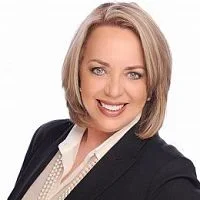Mortgage Broker
An independent contractor who offers the loan products of multiple lenders, called wholesalers. Mortgage brokers do not lend. They counsel borrowers on any problems involved in qualifying for a loan, including credit problems. Brokers also help borrowers select the loan that best meets their needs and shop for the best deal among the lenders offering that type of loan. Brokers take applications from borrowers and lock the rate and other terms with lenders. They also provide borrowers with the many disclosures required by the federal and state governments. In addition, brokers compile all the documents required for transactions, including the credit report, property appraisal, verification of employment and assets, and so on. Not until a file is complete is it handed off to the lender, who approves and funds the loan. How Brokers Make Money: The lenders that mortgage brokers deal with quote a 'wholesale' price to the broker, leaving it to the broker to add a markup in order to derive the 'retail' price offered the consumer. For example, the wholesale price on a particular program might be 7% and zero points, to which the broker adds a markup of one point, resulting in an offer to the customer of 7% and one point. But if the broker adds a two-point markup, the customer would pay 7% and two points. Advantages of Dealing with Brokers: Borrowers with special needs do better dealing with a broker. No one lender offers loans in every market niche. For example, many lenders won't offer loans to borrowers with poor credit, borrowers who can't document their income, borrowers who can't make any down payment, borrowers who want to purchase a condominium as an investment, borrowers with very high existing debts, borrowers who need to close within 72 hours, or borrowers who reside abroad. The list goes on and on. But there are lenders in every one of these niches, and brokers, who deal with multiple lenders, can find them when needed. In addition, brokers are experts at shopping the market. Brokers are far better positioned than consumers to select the best deal available from competing lenders on the day the terms of the loan are 'locked.' In addition, brokers keep lenders honest on lender fees specified in dollars, sometimes called 'junk fees.' Some retail lenders view these fees as an added source of revenue because borrowers often don't know what they are at the time they select the lender. But wholesale lenders don't play this game. Lenders quote wholesale prices to brokers because of the work that brokers do for them that lenders would otherwise have to do themselves. While there are no published statistics on the wholesale/retail price difference, informed observers say that it averages about 1.5 points. The price savings to the borrower thus consist of the wholesale-retail price spread plus the savings from better shopping. On the other side of the ledger is the broker's fee. If the price savings exceed the fee, the borrower pays less dealing with a broker.
Popular Mortgage Terms
Insurance provided the lender against loss on a mortgage in the event of borrower default. In the U.S., all FHA and VA mortgages are insured by the federal government. On other mortgages, ...
Fees assessed by lenders when payments are late. Late fees are usually 4% or 5% of the payment. A borrower with a 6% mortgage for 30 years who pays a 5% late charge every month raises his ...
The largest loan size permitted on a particular loan program. For programs where the loan is targeted for sale to Fannie Mae or Freddie Mac, the maximum will be the largest loan ...
The initial interest rate on an ARM, when it is below the fully indexed rate. ...
On an ARM, the assumption that the value of the index to which the interest rate is tied does not change from its initial level. ...
The process of raising cash periodically through successive cash-out refinancings. This is a scam initiated by mortgage brokers that victimizes wholesale lenders, with the connivance of ...
A credit report contains detailed information regarding the relationship history of an individual with several financial institutions. How do I get a Credit Report?You ask a credit bureau. ...
Limit on the size of payment change on an adjustable rate mortgage. ...
A documentation requirement where the applicant's income is not disclosed. ...

Have a question or comment?
We're here to help.